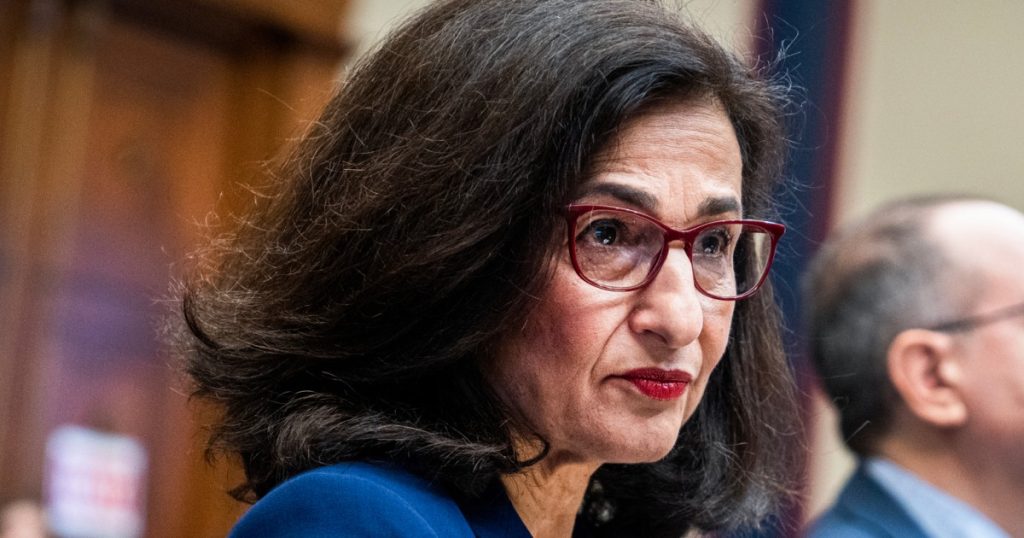Minouche Shafik, the president of Columbia University, announced her resignation after being in the position for a little over a year amidst criticism and protests related to the war in Gaza. She cited difficulties in overcoming divergent views within the community and the toll it took on her family as reasons for stepping down. Shafik had faced criticism from both anti-war protesters and House Republicans for different reasons, leading to a challenging tenure as president. She had asked the NYPD to clear encampments set up by protesters on the campus who were demonstrating in solidarity with Palestinians.
The protests at Columbia University were part of a larger wave of demonstrations at college campuses across the United States following the terror attacks by Hamas in Israel and the subsequent war in Gaza. Many of these protest groups called for their schools to divest from financial support of Israel, and Columbia was no exception. Shafik was called to testify before a House committee about her handling of antisemitism on campus in April, which added to the pressures she faced during her presidency. The resignation of Shafik is effective immediately, and Katrina Armstrong has been named interim president.
The Columbia Board of Trustees expressed regret at accepting Shafik’s resignation but acknowledged her decision to step down. Armstrong, who currently leads Columbia’s health and biomedical sciences campus, will serve as interim president. In a statement, Armstrong expressed optimism and resolve in moving forward, emphasizing the opportunity to renew the university’s vision and strengthen the community. The student protest group Columbia Students for Justice in Palestine welcomed Shafik’s resignation, stating that any future president who does not heed the demand for divestment will face similar consequences.
In her resignation letter, Shafik emphasized the core values of Columbia University, including free speech, openness to new ideas, and zero tolerance for discrimination of any kind. She spoke of the challenges and disruptions faced by the campus over the past year but expressed confidence that the university’s mission and values would continue to guide them. Shafik also mentioned the distressing nature of being the subject of threats and abuse, both at a personal level and towards colleagues and students. Republican lawmakers have targeted university presidents in recent months, with Shafik being the latest resignation following Liz Magill of the University of Pennsylvania and Claudine Gay of Harvard University.
Overall, Shafik’s tenure as president of Columbia University was marked by controversy and challenges stemming from protests related to the war in Gaza and allegations of antisemitism on campus. Her resignation comes amidst mounting pressure and criticism, leading her to step down with the hope that new leadership can help the university navigate the challenges ahead. The protests and political tensions that have affected Columbia and other universities reflect broader social and political divisions within the United States. The appointment of Katrina Armstrong as interim president signals a new chapter for Columbia University, as the community seeks to move forward, address issues of concern, and uphold its core values.


